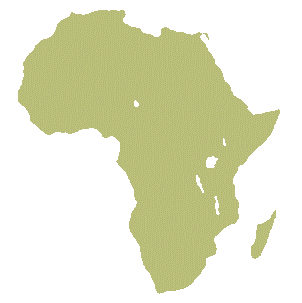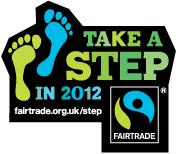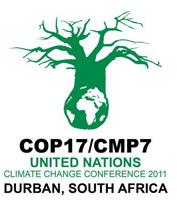

Global Citizenship blog
 Each year Refugee Week grows and increases in profile, making its mark on the UK’s cultural calendar. This year’s theme Spirit captures:
Each year Refugee Week grows and increases in profile, making its mark on the UK’s cultural calendar. This year’s theme Spirit captures:
Refugee Week is all about having fun, broadening horizons and breaking down barriers. Every June the week long UK-wide festival of arts, cultural and educational events celebrates contributions refugees have made to the UK, and promotes understanding about why people seek sanctuary.
Click here to see the exciting programme of activities and events for 2012>>
More Its the time of the year when many teachers are planning ahead, both for the summer school holidays and for the next school annual cycle. And every year a number of Scottish teachers decide to spend part of their time in Africa as volunteers who can make a contribution to development and improvement of school education in a developing country. Some will go for short periods, others will commit to a longer stay, and they will do this as individuals or as part of a group, through a link organised by a local church or a charity. And as a consequence each one will return to Scotland better able to demonstrate and champion global citizenship among the young people they teach here.
Its the time of the year when many teachers are planning ahead, both for the summer school holidays and for the next school annual cycle. And every year a number of Scottish teachers decide to spend part of their time in Africa as volunteers who can make a contribution to development and improvement of school education in a developing country. Some will go for short periods, others will commit to a longer stay, and they will do this as individuals or as part of a group, through a link organised by a local church or a charity. And as a consequence each one will return to Scotland better able to demonstrate and champion global citizenship among the young people they teach here.
Two examples:
International development charity Voluntary Service Overseas VSO currently has an urgent need for education professionals to take up volunteering placements in Ethiopia, starting this September 2012. VSO volunteers are working at a number of different levels in Ethiopia to help improve teacher training and education management, increasing the quality and relevance of education that children receive. Senior teachers and education managers are working with national government institutions supporting the development and implementation of national policies like teacher training programmes and monitoring and evaluation systems. Experienced teachers are working within regional education and teacher education institutions to help deliver training programmes and develop the skills of their local colleagues. Many Scottish teachers have gained their experience through VSO. This short YouTube video clip features Edinburgh teacher Dhamayanthi talking about her volunteering experience in Ethiopia. Contact VSO about Ethiopia and other opportunities to use your skills to help children in developing nations to get a better start in life.
Another kind of opportunity is provided by the Global Teachers programme run by charity Link Community Development Scotland, now solely funded by the Wood Family Trust. This summer a group of teachers and headteachers from Aberdeenshire will spend five weeks in Ugandan schools, helping local teachers to employ better pedagogy, and improve school leadership and planning. An article in TESS describes the preparatory phase for the Scots and the kind of positive outcomes the individuals hope for.
More Storytelling is part of human existence around the world in every culture, and encouraging children to develop and tell stories is a frequently-used form of education. The Storylines methodology is well-established in Scottish schools, and involves children creating their own fictional communities in which their stories will be set. In the hands of imaginative teachers, this approach lends itself to some very thoughtful learning about global citizenship.
Storytelling is part of human existence around the world in every culture, and encouraging children to develop and tell stories is a frequently-used form of education. The Storylines methodology is well-established in Scottish schools, and involves children creating their own fictional communities in which their stories will be set. In the hands of imaginative teachers, this approach lends itself to some very thoughtful learning about global citizenship.
WOSDEC has worked with Glasgow City Council and Strathclyde University to develop a Global Storylines project, which has been trialled in Glasgow primary schools. It used Storylines in conjunction with drama to enable learners to explore challenging global issues such as peace and conflict, interdependence, land ownership, farming and food security.
A delegation from Glasgow will participate in the international conference ‘Storyline in Iceland 2012′ this summer, sharing their experience of using this approach in Scotland and also learning from the experience of teachers in other nations. And a recent dissemination event at Strathclyde University helped spread the message among teachers from a number of Scottish local authorities.
For teachers who want to know more, there’s also an article about the Global Storylines project in the Summer 2012 edition of the excellent ‘Stride‘ magazine, available for free download from the IDEAS network website.
For teachers who might consider how to use Storyline to support Language teaching, the Creative Dialogues website might prove useful.
MoreA few very different opportunities for teachers to reflect on how to use film viewings and film-making as a tool for supporting global citizenship education:
With a good fit to current work in schools around Games Legacy and the Olympics, the Edinburgh Filmhouse has a schools-only showing of the African film ‘Town of Runners’ on Monday 28th May. This showing has been organised by Take One Action film festival, a charity which promotes the different perspectives offered by films from developing countries. The film tells the story of two Ethiopian girls struggling to become athletes in a town which has a history of producing great distance runners, and is reviewed in the Guardian.
Take One Action is also seeking secondary schools to participate in its Young Heroes action project between June and December 2012. It’s a residential and follow-on screening project for young people aged 15-21 and their educators or youth workers, and builds their capacity to consider global issues and use film to encourage wider debate.
Thirdly, the Northern Lights project aims to create Scotland’s first ever mass participation documentary, an innovative way to build a movie about contemporary Scotland. Basically it will be composed, and edited into a final feature-length film, from videos made by people all over the country and contributed to a common pool of rich material. Read this blog post for more detail and weblinks.
MoreTeachers are adept at finding effective and innovative ways to support student learning, and I often see great examples of this for various aspects of global citizenship. Here in Scotland there’s a system run by the General Teaching Council Scotland by which teachers can get Professional Recognition for excellent practice.
Last week a celebratory event was held in Glasgow at which local teachers received their Award certificates for their achievements in education for global citizenship. It was a pleasure to talk to the teachers involved, and see the displays of material about school partnerships with sub-Saharan Africa, e-twinning projects, Comenius school partnerships in Europe, and much more. Congratulations to all involved.
Ten of those teachers are also involved in the ‘Global Storylines’ project led by WOSDEC (West of Scotland Development Education Centre), Glasgow City Council and the University of Strathclyde. This uses the Storylines approach to get pupils to develop stories around themes such as conflict, sustainability and food. A dissemination event to be held at Strathclyde University later this week will share some of the experience gained from this project with a wider group of teachers.
More Global storylines is an exciting, innovative three year project in which storyline and drama are used to embed an exploration of global issues into the learning experiences of pupils in Glasgow.
Global storylines is an exciting, innovative three year project in which storyline and drama are used to embed an exploration of global issues into the learning experiences of pupils in Glasgow.
Now in its second year, teachers from 17 Glasgow primary schools are exploring challenging global issues with their pupils, within the safe fictional community that storyline offers. Each global storyline uniquely combines global citizenship methodologies with both the pedagogies of “Storyline” and the associated pedagogies of process drama.
Learners are supported to think creatively, make connections, solve problems, and examine values and attitudes.
The event will be introduced by Steve Bell, Co-creator of Storyline, followed by a presentation by the Global Storylines Team on the scope of the project, the methodology, learning contexts and research findings.
Displays and videos of children’s work, and presentations from the project teachers, help to give a flavour of the project.
Venue & Registration:
Thursday 3rd May 2012, 2.30-5.00pm
University of Strathclyde, McCance Building
If you would like to attend this event, please register at:
http://ewds.strath.ac.uk/engage/Events/GlasgowGlobalStorylinesProject.aspx
More Fairtrade Fortnight starts on 27th February 2012 and runs until 11th March. As usual, hundreds of Scottish schools and community groups will be involved in local efforts to change attitudes and behaviour and establish Scotland as a Fairtrade Nation.
Fairtrade Fortnight starts on 27th February 2012 and runs until 11th March. As usual, hundreds of Scottish schools and community groups will be involved in local efforts to change attitudes and behaviour and establish Scotland as a Fairtrade Nation.
The Fairtrade Foundation’s campaign focus this year is ‘Take a Step in 2012′. Their website provides background information about the inequalities of world trade, the difference a fair deal for producers can make, and some ideas for action. An interactive map displays some of the local projects and events taking part.
Many charities will be contributing to the overall campaign in their own ways, offering extra opportunities for schools and learners to engage with Fairtrade. For example, Tradecraft is encouraging local people to host a Big Brew event in their own area, and provides resources for schools and organisers to help them set things up.
Oxfam has resources which enable teachers to cover the issue of Trade as part of their Global Citizenship teaching. The SCIAF Youth website also has material to support young people thinking about this key issue.
If your school comes up with an innovative way of promoting fairtrade, let us know. [email protected]
The Scottish Government has confirmed that Scotland is likely to meet the criteria to become a Fair Trade Nation in 2012, with many local authorities, towns and schools already committed.
More As major UN climate talks in Durban, South Africa reach their final day, the most likely outcome is a modest step towards a broader deal to cut greenhouse gas pollution to fight climate change.
As major UN climate talks in Durban, South Africa reach their final day, the most likely outcome is a modest step towards a broader deal to cut greenhouse gas pollution to fight climate change.
Scottish climate campaigner, Lexi Barnett (Campaigns Officer with SCIAF), has been attending the talks with one of Latin America’s leading climate scientist. Check out her blog and the news from the last day.
More Main focus: Global Citizenship and Games Legacy for Scotland
Main focus: Global Citizenship and Games Legacy for Scotland
Tuesday, 25th October 2011, 9.30 am – 3.30pm
Calderglen High School – the first Community Sports Hub in Scotland, Calderglen has a strong focus on community sport, health and well being and global citizenship. Staff and pupils will provide you with the opportunity to spend the day hearing how the theme of the Olympic, Paralympic and Commonwealth Games has provided a platform for transforming the school’s ethos and its approach to interdisciplinary learning, developing rich learning experiences and activities including:
The aim of the event is to identify and share the practical lessons and ideas that have helped the school move forward in its journey towards a whole school approach to global citizenship within Curriculum for Excellence - and also to reflect on the challenges encountered along the way. Fundamental to the event will be the professional dialogue and exchange of ideas that takes place on the day, enabling participants to network, reflect on their own practice and develop intentions for improvement in their own context. With this in mind, participants are encouraged to join the Leadership of Global Citizenship online community and share their reflections.
The programme for the event can be downloaded here >>Calderglen High School Open day Flyer_Programme
MoreBritish Council supports schools in Scotland to make connections in Europe and globally and provide a wide variety of opportunities including accreditation and grants for CPD, exchange visits, work placements abroad and joint curriculum project work with partner schools.
The following up-coming opportunities and deadlines are opened to any school in Scotland in order to develop new and existing global connections:
Connecting Classrooms: Project with schools in the Middle East– Jordan, Lebanon, Oman, Saudi Arabia, United Arab Emirates. Deadline: 21 October
Schools with existing China school partnerships can also apply on 21 October to receive funding to develop joint curriculum work and involve students in partner visits.
For more information visit: www.britishcouncil.org/connectingclassrooms
£250 is available for staff costs, travel and subsistence to explore the idea of long term equitable partnerships with schools in Africa, Asia, Latin America and the Caribbean.
Reciprocal Visit Grants (for partnerships with Africa, Asia, Latin America and the Caribbean): 1 November- 9 January (deadline)
For more information: www.dfid.org.uk/globalschools
ETwinning and Comenius: These projects can help schools to start new partnerships projects with European partners. In-Service Training on professional development courses or job shadowing and to host Comenius Assistants in 2012. under: www.britishcouncil.org/comenius or www.etwinning.net
Online resource including partner finding and accreditation to receive recognition for schools’ global citizenship and international work is also available through www.britishcouncil.org/schoolsonline.
More
Find us on